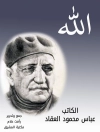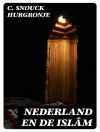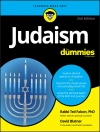Richard Carlile’s ‚The Character of a Priest‘ offers a scathing critique of organized religion and the clergy’s moral and ethical standings during the early 19th century. Through a blend of polemic and satire, Carlile dissects the hypocrisy and doctrinal shortcomings of priests, illuminating their role as gatekeepers of faith. This work stands as an emblem of Enlightenment thought, where reason and skepticism challenge dogma, reflecting the burgeoning secular movement of the era. Carlile’s incisive prose and sharp wit invite readers to reconsider the authority and character of religious leaders in a rapidly changing society. Carlile, a radical thinker and fervent advocate for free speech, faced imprisonment for his controversial views and publications. His experiences as a journalist and his commitment to reforming societal norms deeply influenced this work. Carlile’s deep-rooted skepticism arose from his encounters with religious dogmatism, ultimately leading him to explore the relationship between morality and religion—issues that resonate profoundly even today. For readers intrigued by the intersections of faith, moral philosophy, and social critique, ‚The Character of a Priest‘ is an essential read. It not only challenges prevailing norms of its time but also provides thoughtful commentary on the human condition’s quest for integrity, making it a timeless exploration of belief and morality.
Über den Autor
Richard Carlile (1790–1843) was a pivotal figure in the fight for press freedom and the promotion of radical political reform in early 19th-century Britain. Born in Ashburton, Devon, Carlile was a self-educated man who found his calling in the struggle for the rights of the working class and the dissemination of secular and republican ideas. Leveraging his skills as a writer and publisher, Carlile published numerous pamphlets and works that often brought him into direct conflict with the British authorities, leading to multiple imprisonments for blasphemy and sedition. Among his published titles is ‚The Character of a Priest‘, which reflects his staunch anti-establishment stance and his critique of the Anglican clergy’s influence on societal norms. Carlile’s literary style is marked by its directness and polemical vigor, with works characterized by an unyielding defense of free speech and a commitment to anti-censorship ideals. Despite facing personal hardships as a result of his convictions, including sustained periods of incarceration that took a toll on his health, Carlile’s legacy endures as a champion of radical reform and a precursor to later secularist and freethought movements in the UK. His writings not only challenged the status quo but also inspired subsequent generations of free thinkers and activists. Carlile’s influence reached beyond his immediate sphere, feeding into wider European and transatlantic discussions on democracy, civil liberties, and the role of religion in public life.












